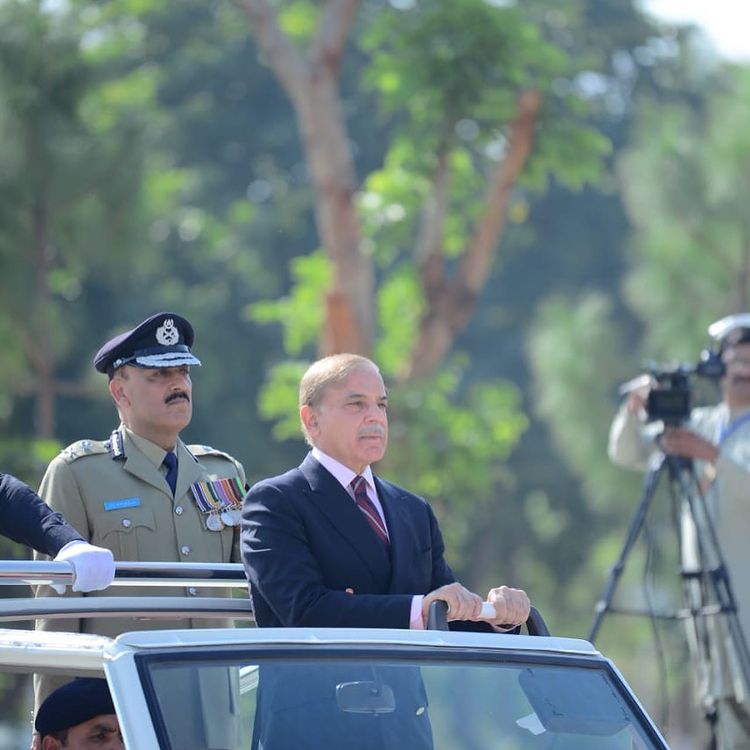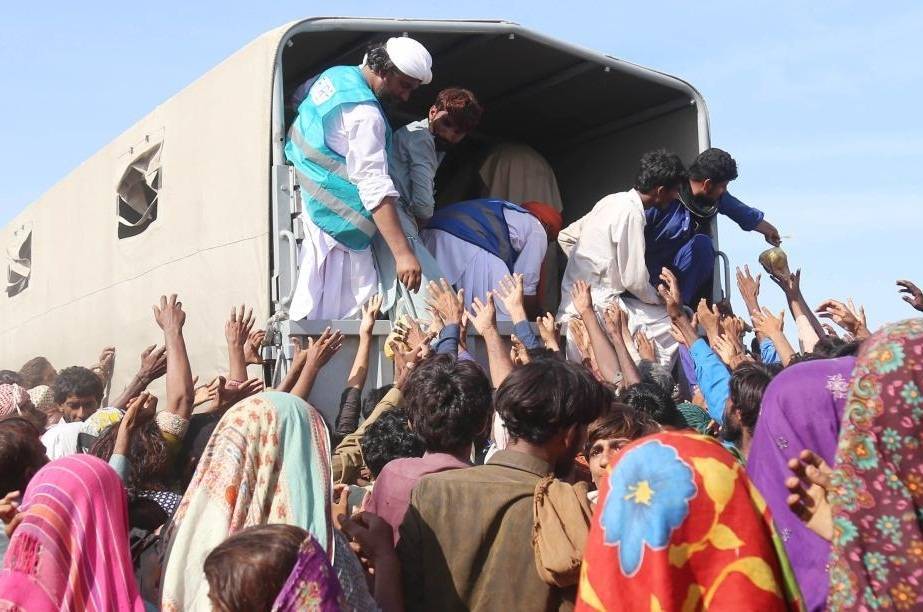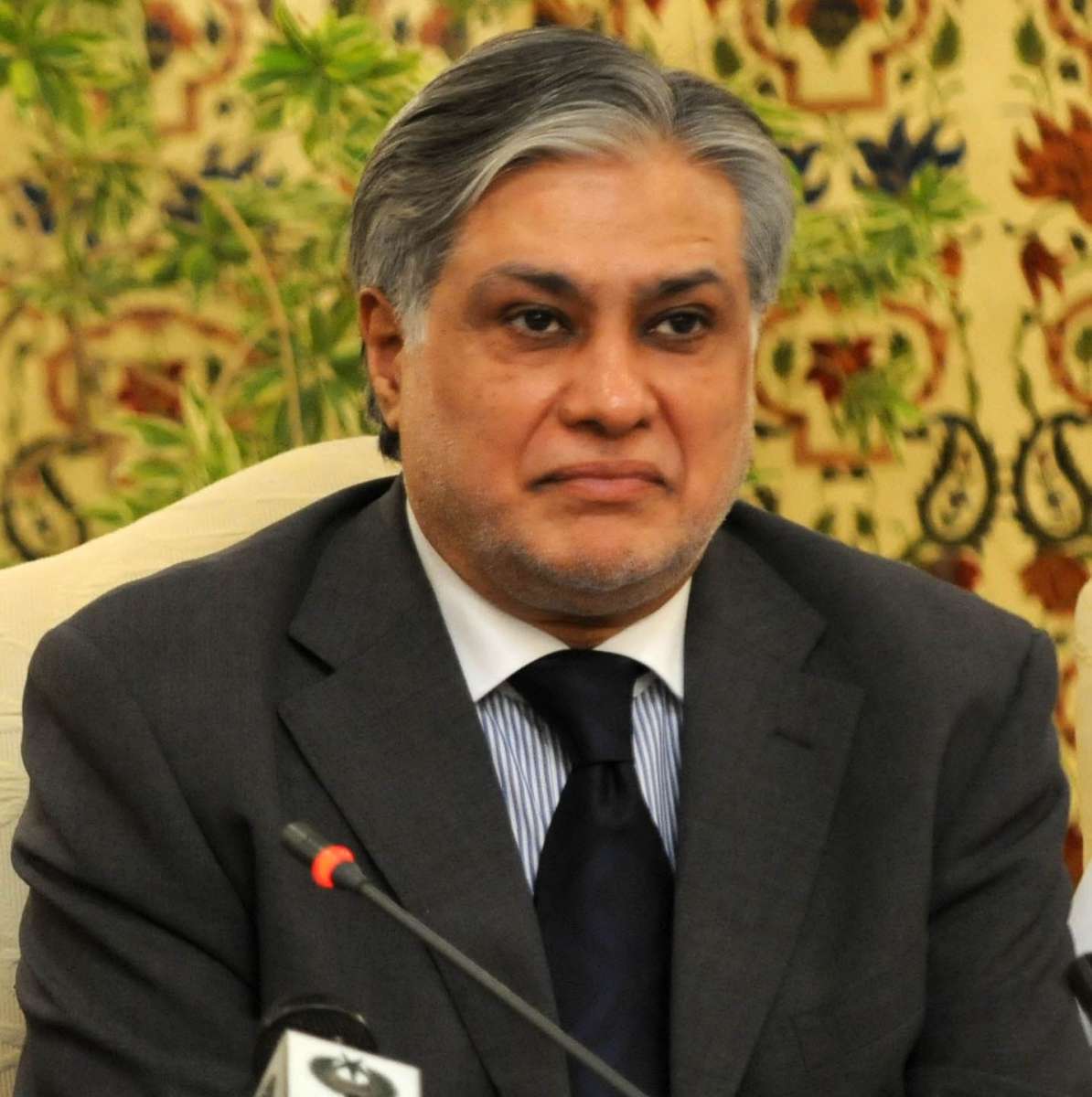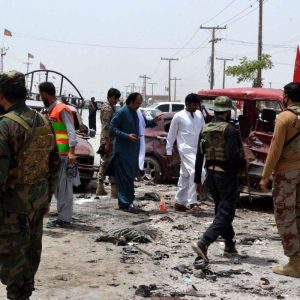Pak economy has little chance to improve without addressing structural distortions. The World Bank, identifying the main reasons for structural imbalances, observed that distortions either introduced by policy decisions or other impediments remain unaddressed while reforms remain eluding impeding increase in productivity. These distortions are present across all the aspects of economic policies including taxes, subsidies, trade restrictions and gender norms … writes Dr Sakariya Kareem
Recently Pakistan Finance Minister Ishaq Dar dismissed any threat of default or oil shortage. Surprisingly the finance minister went on to promise that the due payment on the Sukuk bond would be done as per schedule. Notwithstanding his assurances and Minister of State Dr Aisha Ghaus Pasha’s statement on the floor of the National Assembly that there is nothing to worry about, the economic situation of Pakistan is very fragile.
Pak economy has little chance to improve without addressing structural distortions. The World Bank, identifying the main reasons for structural imbalances, observed that distortions either introduced by policy decisions or other impediments remain unaddressed while reforms remain eluding impending increases in productivity. These distortions are present across all aspects of economic policies including taxes, subsidies, trade restrictions and gender norms.

Islamabad is facing an unprecedented foreign exchange crisis. The perception of Pakistan’s risk of default has worsened with the 5-year Credit Default Swap (CDS) surging by 30 percentage points in a week to 93% ahead of the repayment of the USD 1 billion Sukuk international bond, maturing in early December. The CDS was just 4.2% in January 2021. The developments came amid a delay in the 9th review of Pakistan’s economy by the International Monetary Fund (IMF), which partly blocked the foreign currency inflows.
The foreign exchange reserves depleted to a critically low level of USD 8 billion against over USD 20 billion in August 2021, weakening the country’s capacity to make international payments. Foreign Direct Investment (FDI) nosedived by 52% during the first four months of the current fiscal year FY23, reflecting poor economic health. Pakistan could manage to receive only USD 4.2 billion in new loans in the first four months of the current fiscal year compared to estimates of around USD 7 billion.
Adding to the forex crisis of Pakistan is a continued fall in remittances. In July-October 2022 remittances fell to USD 9.9 billion, down 8.6% from USD 10.827 billion in July-October last year. It is estimated that if the declining trend continues, total remittances in FY23, ending in June would remain close to USD 30 billion, lower than the USD 31 billion that flowed in FY 2022.
That may make it difficult for Islamabad to contain its current account deficit to around USD 10 billion. This is viewed in the light of sluggish merchandise exports which recorded a meagre growth of 1% in the July-October 2022 period to USD 9.549 billion and declining remittances from Saudi Arabia, UAE and the UK, constituting about 57% of the total receipt with no signs of an uptick due to economic and expatriate labour market conditions indicate. There is no sign of improvement in the forex situation. Expatriate Pakistanis in Saudi Arabia are falling because expatriate workers from other countries, including India are outnumbering expatriate Pakistanis in professional/managerial jobs.
Meanwhile, Pakistan’s textiles exports have dropped to their 17-month low since May 2021 due to a global economic slowdown in the textile and clothing demand in Europe, the UK and the US amid elevated price inflation, growing energy expenditure and surging credit costs in the West. Last year, Pak export earnings were at USD 19.35 billion, a historic high. But this year the export scenario is disappointing. Textile exports in Pakistan may decline by USD 3 billion.
Although the overall trade deficit of Pakistan shrank to USD 10.8 billion in the first four months of FY 2023 as compared to the deficit of USD 13.75 billion in the same period of the previous fiscal year, there is no reason for complacency as it is primarily due to decline in imports. This could be a sign of economic slowdown. It is also due to a slight dip in international commodity prices.
Thus, Pakistan’s economy continues to be in shambles and strangulated in a deep mess, owing to the depletion of foreign currency reserves, a rising import bill and a depreciating rupee. It is widely feared that Pakistan is on the verge of imminent default.

Taken together, these impediments create powerful incentives for firms and households to allocate resources in ways that are socially suboptimal and discourage innovation in the country. Direct tax rates tend to make it more profitable to invest in real estate rather than investing in manufacturing or tradable services without the production of forex generating exportable employment.
Gender norms in Pakistan often mean that this accumulated human capital is underused because females do not participate to their potential in the labour force. World Bank states that the aggregate productivity gains of eliminating distortions stand at 30%, with about 18% due to the improved allocation of resources and 12% due to the entry of more firms into productive activities.
The decline in productivity is associated with low investment rates, particularly in tradable and productive sectors. Further, government support to SOE, which is unviable, uses borrowings as it faces a scarcity of funds. Many of them operate in upstream sectors such as transport, finance or energy, spreading their inefficiencies to the rest of the economy due to their linkages.
Pakistan is a poor learner. Islamabad relied on large remittance inflows from its large diaspora, particularly in the Middle East countries. Pakistan also has witnessed periods of abundant foreign exchange inflows in the past in the form of external loans, grants and remittances. But the global economy is facing severe inflation and recessionary fears. The past streams of investment flows cannot be expected and remittances and exports would not see any spurt, at least in the medium term. Islamabad’s policy responses to these changes have been inadequate. In the past even when it received external inflows, its external sector, for most of the period was facing a deficit. Pakistan has faced current account deficits in 18 out of 22 years and availed 22 stabilization & budget support programs from the IMF which so far is indicative of economic uncertainty.
Since the beginning of 2022, Pakistan faced a series of balance of payments crises. This crisis heightened risks to debt sustainability and increased vulnerability for implementing long-term structural reforms. With structurally low exports and limited FDI inflows, financing this imbalance has become a challenge which is now grown to gigantic proportions. Devastating floods had taken up whatever was left of the poor population. Islamabad is facing imminent default in meeting foreign debt obligations. The signs are not good.
It is now being curiously watched whether Pakistan policymakers halt politicking and solve the protracted economic problems, especially along the clues provided by the multilateral agencies.













